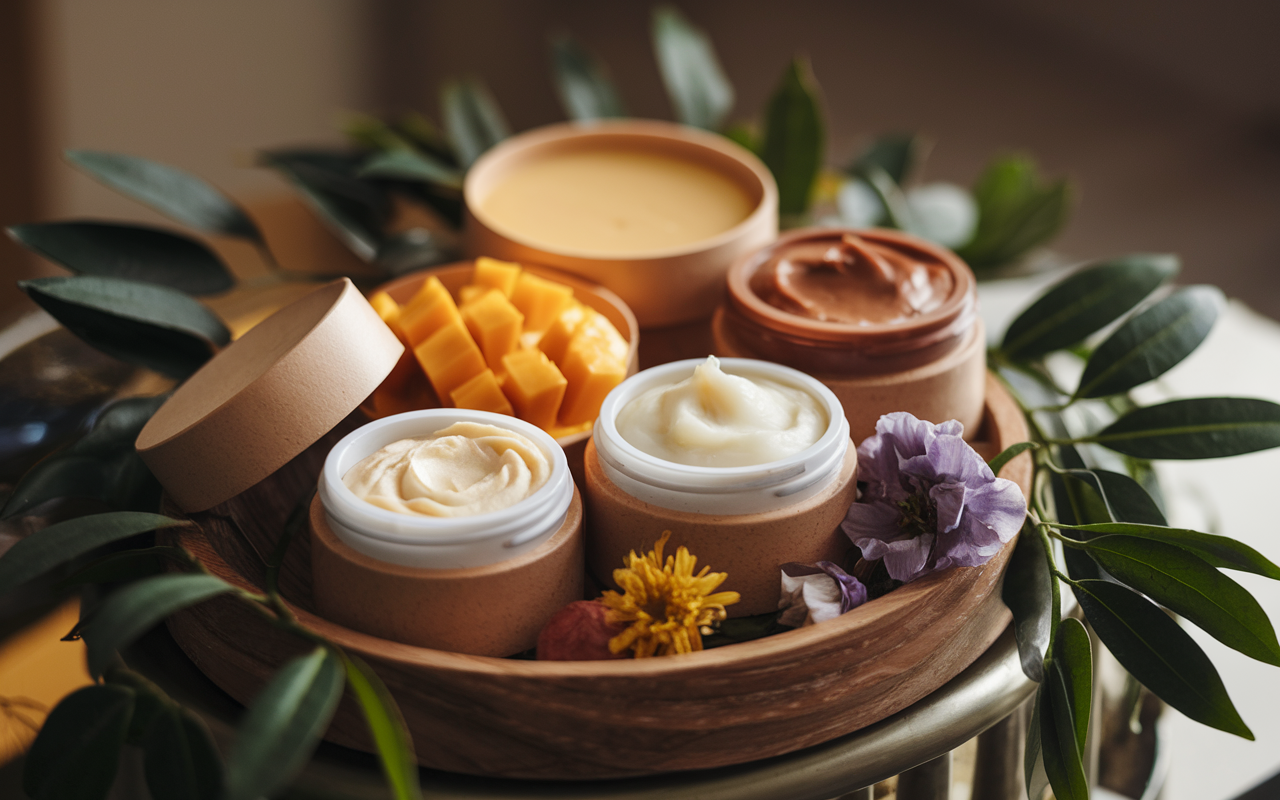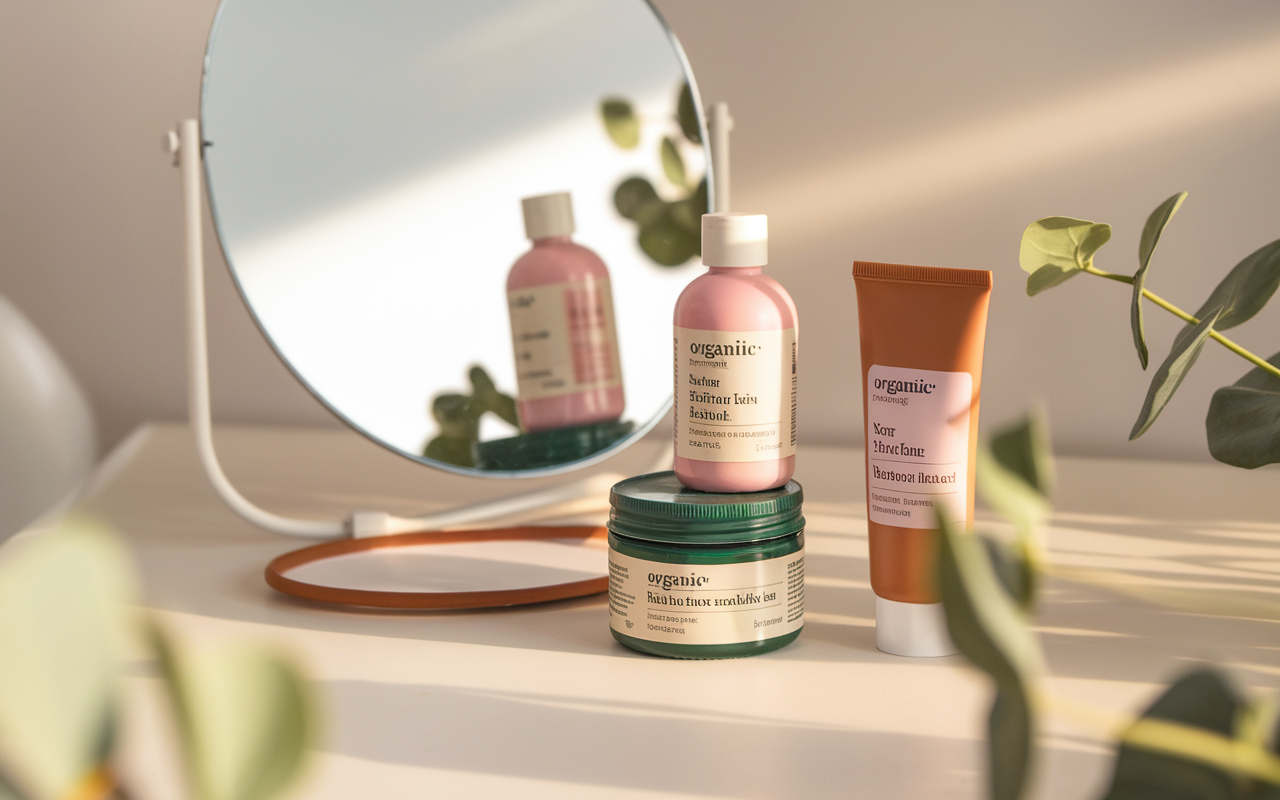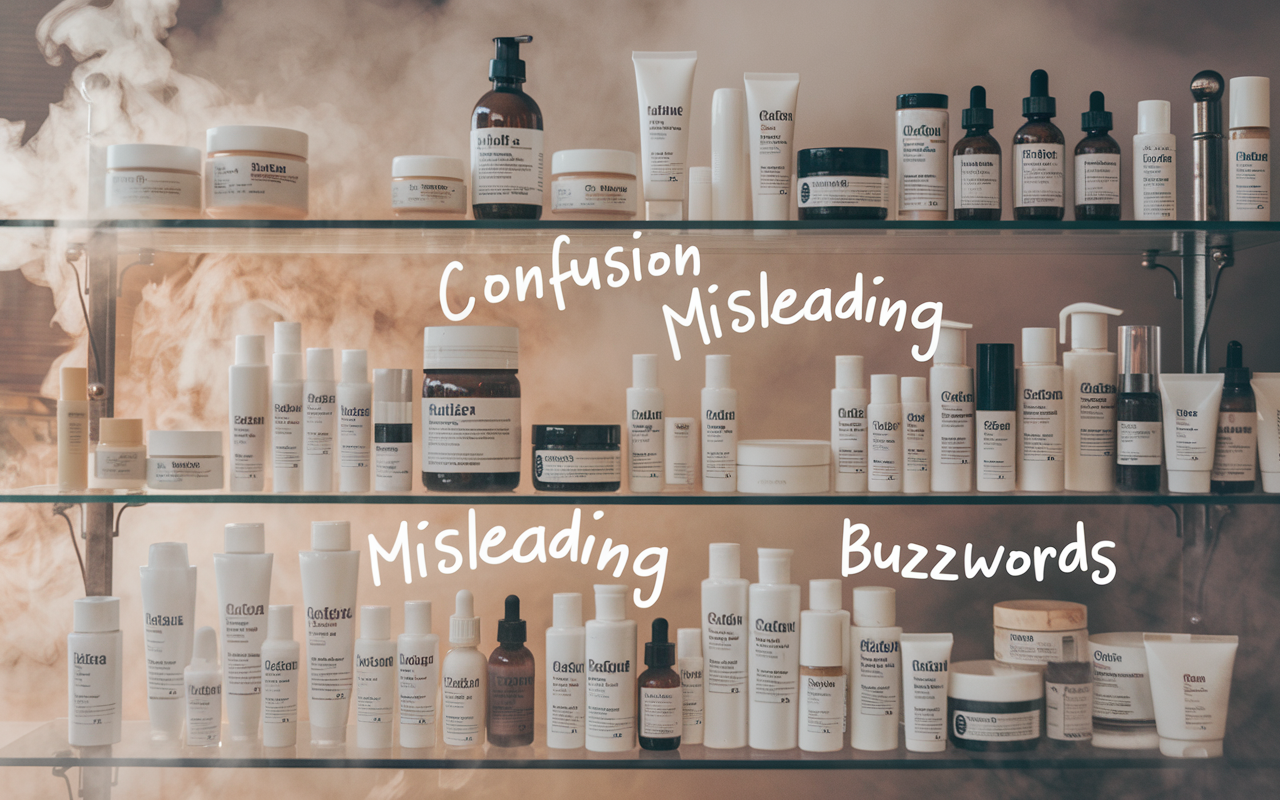
Introduction
There’s something incredibly special about choosing products that promise to be gentle, natural, and sustainable. The term “organic skin care” evokes feelings of purity, self-love, and environmental responsibility. But despite its popularity, organic skin care is often misunderstood, tangled in a web of misconceptions and myths that do more harm than good. Let’s embark on a journey together to separate fact from fiction, uncovering the truth behind organic skin care.
What is Organic Skin Care?
Defining Organic Skin Care
When we talk about organic skin care, we’re referring to products made from ingredients grown without the use of synthetic pesticides, genetically modified organisms (GMOs), or artificial fertilizers. These ingredients are as close to nature as possible, processed in ways that preserve their purity and effectiveness. Imagine nurturing your skin with elements the earth has carefully crafted, without the interference of harmful chemicals.
How It Differs From Conventional Products
Conventional skin care products are often packed with synthetic chemicals that can be harsh on your skin and potentially harmful over time. While they might provide quick fixes, they don’t always offer long-term benefits. Organic skin care, on the other hand, takes a gentler approach. It prioritizes skin health and harmony with nature, favoring long-lasting results over instant gratification.
Misconception 1: Organic Skin Care is Always Expensive
Breaking Down the Price Myth
One of the most common beliefs is that organic skin care is a luxury only the wealthy can afford. While it’s true that some high-end organic brands come with a hefty price tag, this isn’t the whole story. The cost of organic skin care reflects the ethical sourcing of ingredients, eco-friendly packaging, and sustainable practices. However, that doesn’t mean you need to empty your wallet to go organic.
Affordable Options Exist
The good news is that many affordable organic skin care options are available. Brands are increasingly committed to making organic skin care accessible to a broader audience. You can find budget-friendly choices at your local health store or even make your own organic skin care products at home with ingredients like honey, coconut oil, and aloe vera. Self-care should never be exclusive; it should be a right, not a privilege.
Misconception 2: Organic Products are Ineffective
Debunking the Effectiveness Myth
This misconception has likely made many people hesitant to try organic skin care. After all, how can something so gentle and natural work effectively? The truth is, organic products might not show overnight results, but they work with your skin, not against it. They focus on nourishing, healing, and balancing rather than stripping or shocking your skin into submission.
Scientific Evidence Behind Natural Ingredients
Let’s take a closer look at the science. Green tea, a common organic ingredient, is brimming with antioxidants that fight free radicals and reduce inflammation. Aloe vera, another staple in organic skin care, is renowned for its healing and soothing properties. Rosehip seed oil is celebrated for its ability to rejuvenate and brighten the skin, thanks to its high vitamin A and C content. These natural wonders are backed by studies and centuries of traditional use, proving that organic skin care isn’t just effective; it’s powerful.
Misconception 3: Organic Skin Care is Only for Sensitive Skin
Why It’s Great for All Skin Types
There’s a persistent idea that organic skin care only benefits those with sensitive or easily irritated skin. While it’s true that organic products are often gentle and soothing, they can be beneficial for all skin types. Whether your skin is oily, dry, or a combination of both, there are organic solutions tailored to your unique needs.
Customizable Routines for Every Need
Organic skin care is highly customizable, allowing you to create a routine that works specifically for you. For oily skin, ingredients like tea tree oil and witch hazel can help balance sebum production. For dry skin, nourishing oils like avocado or shea butter provide deep hydration. The beauty of organic skin care lies in its adaptability, making it a versatile choice for everyone.
Misconception 4: Organic Means 100% Chemical-Free
Understanding Natural vs. Synthetic Chemicals
The word “chemical” often sends shivers down people’s spines, but here’s a reality check: everything is a chemical, even water. The real concern should be whether a chemical is natural or synthetic. Organic skin care uses naturally derived chemicals that are safe for the skin, like essential oils and plant extracts.
The Safety and Role of Preservatives
Preservatives are crucial in preventing microbial growth in skin care products. Without them, your favorite organic moisturizer would become a breeding ground for bacteria. While conventional products often use synthetic preservatives, organic skin care opts for natural alternatives like grapefruit seed extract or rosemary oil. These ingredients ensure your product remains safe to use, balancing purity with practicality.
Misconception 5: Organic Skin Care Works Instantly
The Importance of Patience in Natural Healing
We are of a generation that demands results right away. We want that blemish gone overnight or our wrinkles to vanish with a single application. Organic skin care doesn’t promise instant miracles. Instead, it encourages patience. Organic ingredients take time to heal and rejuvenate your skin, working from the inside out to promote true, long-lasting health.
Long-Term Benefits Over Quick Fixes
Think of organic skin care as a marathon, not a sprint. While conventional products might deliver rapid results, they often do so at the expense of your skin’s long-term health. Organic skin care invests in your future, providing benefits that last. It’s about nourishing your skin with the goodness it needs to thrive, even if it takes a little longer to see visible changes.

Why Misconceptions Persist
Misinformation in the Beauty Industry
The beauty industry thrives on trends, and with those trends comes an avalanche of misinformation. Every week, it seems like there’s a new miracle product or a revolutionary ingredient promising to transform your skin overnight. Companies use buzzwords like “clean,” “natural,” and “organic” to capitalize on consumers’ desire for healthier options. Unfortunately, these terms are often used without proper regulation or oversight. The lack of strict guidelines means brands can label their products as “natural” even if they contain only a small percentage of truly natural ingredients, creating confusion and distrust among consumers. It’s no wonder myths about organic skin care persist when marketing campaigns blur the line between truth and exaggeration.
What’s more, the information consumers receive is often contradictory. One influencer may swear by synthetic ingredients, while another passionately promotes organic skin care. With such conflicting voices, it’s easy to get lost in a sea of half-truths and misconceptions. But amidst the noise, it’s essential to remember that marketing and genuine scientific research don’t always align.
Marketing Tactics That Mislead Consumers
Brands are experts at playing on our emotions and desires, especially when it comes to beauty and self-care. Marketing strategies can be incredibly deceiving, using visuals of lush green fields and pristine waterfalls to create an image of purity and natural goodness. Yet, behind these idyllic images, the products may still contain synthetic chemicals and artificial fragrances. This practice, known as “greenwashing,” tricks well-meaning consumers into believing they’re making healthier, environmentally friendly choices when, in reality, they aren’t.
Greenwashing also feeds off the human tendency to want the best for ourselves and our loved ones. When we see a product labeled as “organic” or “eco-friendly,” we feel reassured, thinking we’re protecting our skin and the planet. This false sense of security can make it harder for consumers to separate genuine organic skin care from clever advertising tactics. Being an informed consumer means digging deeper and understanding what true organic skin care stands for, which can sometimes feel overwhelming in an industry that’s so heavily influenced by profit-driven motives.
The Emotional Connection to Skin Care
How Our Perceptions Affect Our Choices
Skin care is deeply personal. Achieving perfect skin isn’t the only goal; you also need to feel confident, glowing, and happy about yourself. Our daily routines are rituals of self-love and care, moments where we connect with ourselves and our well-being. When we buy into myths about organic skin care, we may unknowingly deprive ourselves of the emotional and physical benefits of a natural routine.
Our perceptions and beliefs about skin care are often shaped by societal beauty standards, which can sometimes be unrealistic and damaging. We’re conditioned to seek perfection, and in our quest for perfect skin, we often look for quick fixes rather than taking the time to understand our skin’s true needs. Organic skin care asks us to slow down and reconsider our approach. It invites us to nurture and listen to our skin rather than trying to mask its imperfections. It’s a journey toward self-acceptance and love, a gentle reminder that true beauty is about health, not just appearances.
Building a Relationship with Your Skin
Consider the most important relationships you have in your life.They’re built on trust, understanding, and care, aren’t they? The relationship you have with your skin should be no different. Your skin works nonstop to heal, rejuvenate, and protect you. It deserves love and respect. When you choose organic skin care, you’re making a conscious decision to treat your skin kindly, with ingredients that nourish and support its natural functions.
Organic skin care is about embracing the imperfections and realizing that beauty is not about erasing every flaw but about highlighting the natural radiance you already possess. It’s about building a relationship with your skin that’s rooted in love and understanding, not harshness and impatience. Imagine how empowering it feels to look in the mirror and know that the products you’re using are made with pure, wholesome ingredients. You’re honoring your skin, treating it as the protective, beautiful organ it is, and that’s a profound act of self-care.
How to Choose the Right Organic Products
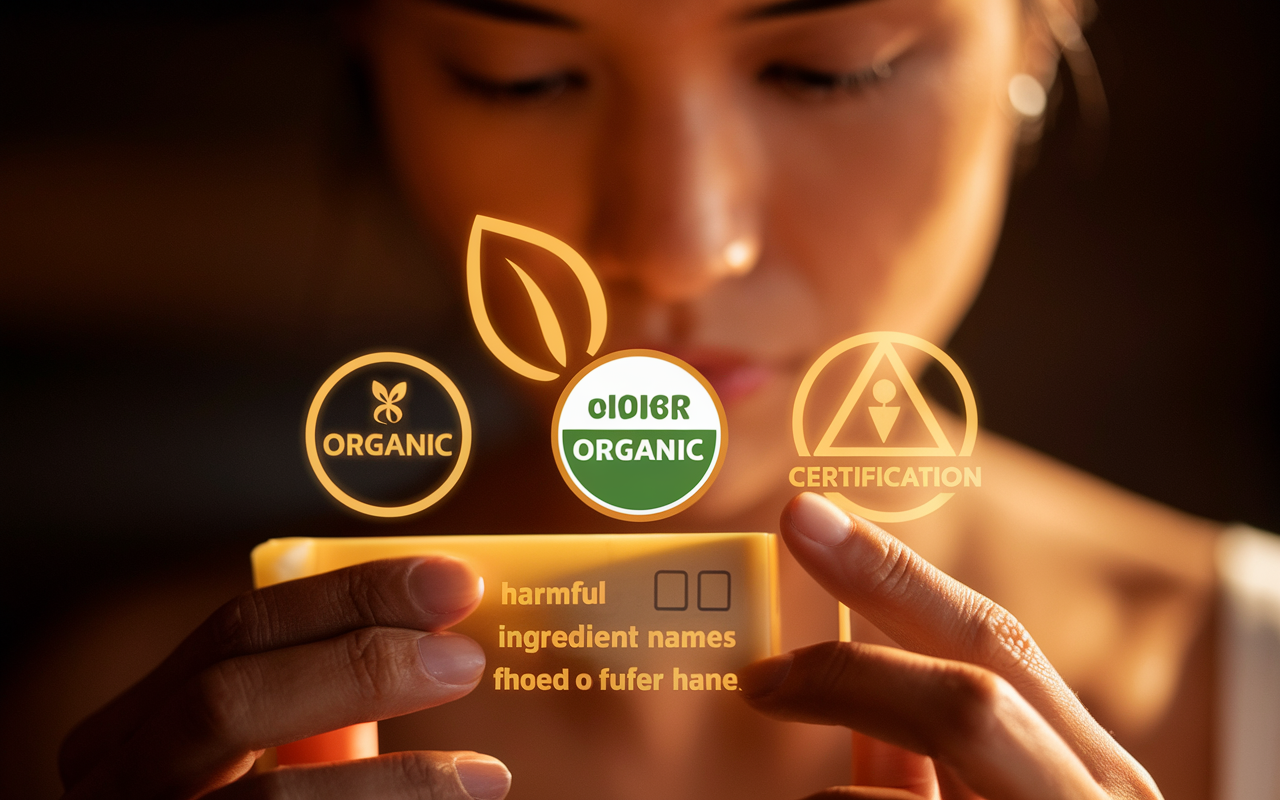
Reading Labels and Ingredients
Navigating the world of organic skin care requires some know-how, and it starts with reading labels carefully. It’s easy to be dazzled by marketing claims, but the real story is in the ingredient list. Look for certifications like USDA Organic, COSMOS, or ECOCERT. These labels are your guarantee that the product meets strict organic standards. If a product claims to be organic but lacks these certifications, it’s worth taking a closer look.
Understanding ingredients doesn’t mean you need to be a chemist. It’s about empowering yourself with knowledge. If you come across an ingredient you can’t pronounce, don’t automatically fear it. Research it. Some natural ingredients have complex names, but they’re perfectly safe and beneficial. For instance, “tocopherol” is simply vitamin E. Taking the time to educate yourself can make all the difference.
Researching Brands and Their Ethics
In a world where social and environmental responsibility is becoming increasingly important, it’s crucial to support brands that prioritize transparency, ethical sourcing, and sustainability. A genuine organic skin care brand will openly share its practices and values. They’ll tell you where their ingredients come from, how they’re processed, and what their environmental impact is.
Do a little digging into a brand’s mission. Are they committed to reducing waste, using eco-friendly packaging, and giving back to the community? Choosing ethical brands not only benefits your skin but also supports a movement that values the planet. You’re investing in more than just a product; you’re investing in a vision for a healthier, more sustainable world.
The Benefits of Organic Skin Care
Nourishment Without Harsh Chemicals
Our skin is our body’s largest organ, and it absorbs much of what we put on it. Ingredients used in organic skin care products are produced without the use of synthetic fertilizers, pesticides, or genetically modified organisms. This means you’re not exposing your skin to the harsh chemicals often found in conventional beauty products.
Imagine the difference between drinking a freshly made green juice and a sugary, artificial beverage. Your skin experiences a similar effect when you switch from synthetic products to organic ones. Ingredients like honey, aloe vera, coconut oil, and chamomile are rich in antioxidants, vitamins, and nutrients. They hydrate, soothe, and protect your skin, offering healing properties without the risk of irritation or long-term damage. Your skin deserves to be treated with love, not bombarded with chemicals that can disrupt its natural balance.
Environmental Impact and Sustainability
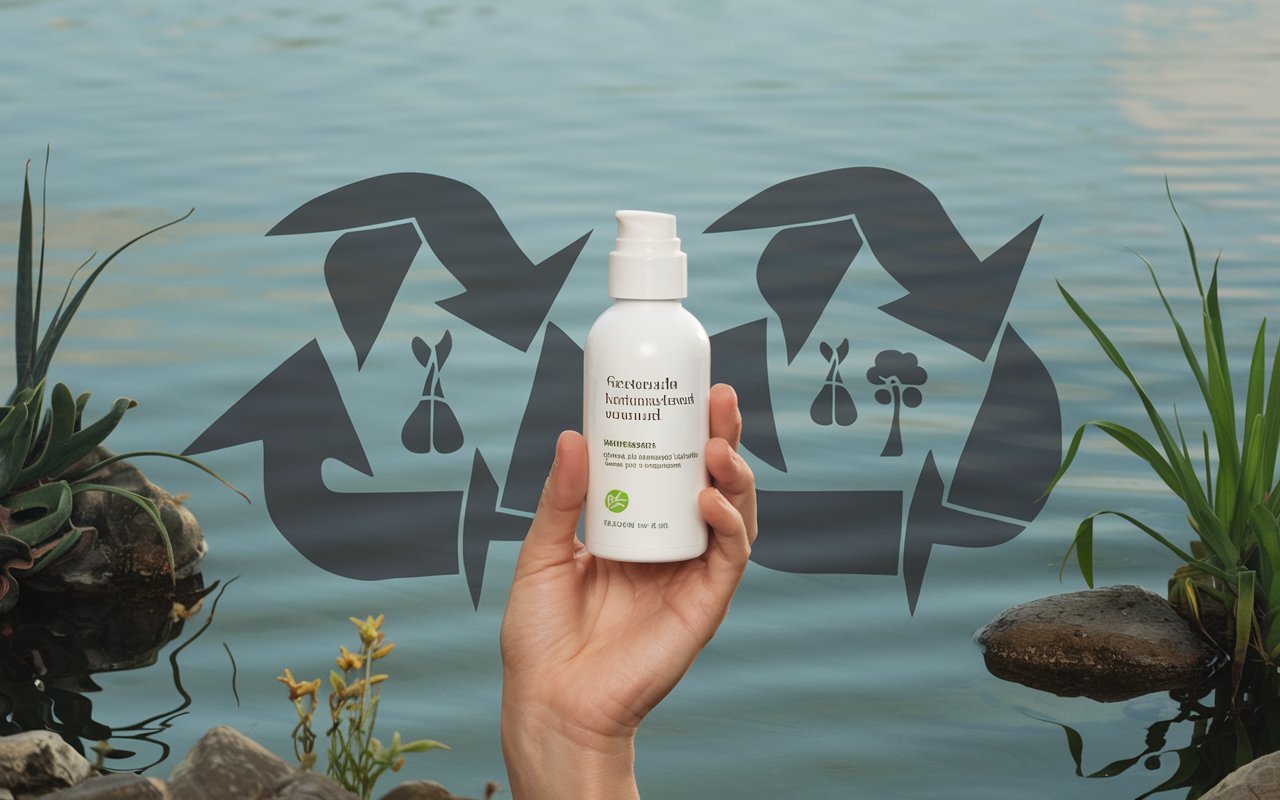
Choosing organic skin care is more than a personal act of self-love; it’s a statement about the world we want to live in. The goal of organic farming is to maintain and improve environmental health. Water conservation, biodiversity, and soil health are their primary goals. When you choose organic, you’re reducing your carbon footprint and contributing to a healthier planet.
Think about the impact of millions of people making more conscious choices. It’s a ripple effect. The packaging of organic skin care products is often biodegradable or made from recycled materials, reducing the waste that ends up in landfills and oceans. By supporting organic brands, you’re playing a part in a larger movement toward sustainability. It’s skin care that benefits more than just your complexion; it benefits the entire planet.
The Future of Organic Skin Care
Trends and Innovations to Look Forward To
The organic skin care industry is evolving rapidly, driven by consumer demand for healthier, more sustainable products. One of the most exciting trends is the rise of waterless beauty. Water is a precious resource, and many brands are innovating with formulations that use little to no water, reducing their environmental impact. These concentrated products are often more potent, providing even greater benefits to your skin.
Biodegradable packaging is another area where organic skin care brands are making strides. Imagine buying a product that not only nourishes your skin but also leaves behind no trace of waste. Advanced plant-based formulations are also on the rise, combining the wisdom of nature with cutting-edge science to create effective, luxurious products.
Why Organic is More Than Just a Trend
Organic skin care isn’t a passing fad; it’s a movement rooted in a desire for healthier, more conscious living. As we become more aware of the impact of our choices on our bodies and the environment, the shift toward organic becomes a lifestyle. It’s about embracing the simplicity and wisdom of nature in our self-care routines and understanding that true beauty comes from within.
Choosing organic is an act of self-respect, a way of honoring the natural rhythms of your skin and the planet. It’s a reminder that we don’t need to compromise our health or our values to feel beautiful. We can have both. The future of organic skin care is full of promise, and as more people make informed choices, the industry will continue to grow and improve. We’re not just consumers; we’re changemakers, shaping the beauty world for the better.
Conclusion
Choosing organic skin care is a deeply personal and empowering decision. It’s about prioritizing your skin’s health and the well-being of the planet. By debunking these common misconceptions, we can move forward with confidence, embracing the natural, nourishing beauty of organic skin care.
FAQs
Q: Is organic skin care better for everyone?
A: Organic skin care is beneficial for many people, but “better” is subjective. Since every person has a unique skin type, what suits one may not suit another. However, if you’re looking to nourish your skin without synthetic chemicals and harsh additives, organic skin care is a gentle and safe choice.
Q: Can organic skin care cause allergies?
A: Yes, even organic ingredients can cause allergic reactions in some individuals. Natural components like essential oils, nuts, or certain plant extracts may still trigger allergies. Always patch-test a new product before using it all over your face or body, and consult a dermatologist if you have concerns.
Q: How long does it take to see results from organic skin care?
A: Results vary depending on your skin type and the issues you’re addressing. Organic skin care focuses on gradual, long-term improvements, so it may take a few weeks to notice a difference. Remember, it’s a journey—embrace the process and trust that your skin is being nourished in a healthy, lasting way.
Q: Are organic products truly free of chemicals?
A: As mentioned earlier, everything is made of chemicals, whether natural or synthetic. The key is understanding the difference between the two. Organic products use naturally derived chemicals that are generally safer and more compatible with your skin.
Q: How can I make sure a product is genuinely organic?
A: Look for reputable certifications like USDA Organic, COSMOS, or ECOCERT. These labels ensure the product meets strict organic standards. Additionally, research the brand and read reviews to make sure they’re committed to ethical and sustainable practices.
Also Visit:
Shocking Mistakes People Make with Organic Skin Care 2024
How to Switch to Organic Skin Care without Breaking the Bank 2024
Inspiring DIY Organic Skin Care Recipes You Can Make at Home 2024
